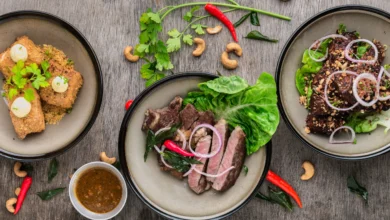
Stress, Bes: 5 Ways to End the Bad Habit of Stress-Eating
Traffic. Deadlines. Personal problems. The list goes on. All these cause incredible amounts of stress. And more often that not, eating becomes our go-to, Band-Aid solution. But what happens when we overdo it?
Emotional eating is a common coping mechanism that may be damaging your long-term health. Here are some tips and tricks to help break this vicious cycle:
- Load up on H20
Water makes up about 60% of your body, and although you can technically survive without food for weeks, dehydration can kill you within days or even hours, depending on the temperature and environment. In a humid country like the Philippines, it makes sense to load up on your fluids.
Bringing a water bottle isn’t only eco-friendly, but it also keeps you hydrated. Also, try to lay off sugar-laden beverages because they will just make you even hungrier. Plain water works just fine, but if you want some flavor, try adding lemon slices, basil leaves or other low-sugar fresh fruits to your water.

- Create Diversions
Aside from drinking fluids, another trick to cutting cravings is chewing gum, preferably one that contains natural sweeteners, like Xylitol. It’s a great stress reliever that contributes to increased levels of concentration, not to mention it can help with memory retention. Just make sure you don’t chew for more than 10 minutes because it can lead to gastritis and can also make you counterproductive.
Another diversion is to set a 10-15 minute timer and keep yourself occupied within that time frame. Take short walks outside and try to observe how you’re feeling. If the craving goes away, it’s probably just stress or boredom. If it doesn’t go away, then it’s a definite sign of your body needing fuel – the right kind of course.
- Choose a lesser evil
If you really must eat something to keep your inner demons at bay, try your best to consume the right food for your body. Eating whole foods that are minimally processed (yes, we’re waving goodbye to fast food) will make you feel more full; hence, making you less likely to overeat. A good mix of protein and carbohydrates usually does the trick. Some snacks that are easy to prepare and won’t break the bank are: a hard-boiled egg, a piece of fresh fruit (which you can also pair with a tablespoon of nut butter), or celery sticks with hummus.
- Take the time to craft healthier meals
A good mix of protein, carbohydrates, and fat is ideally one’s heaviest lunch meal. The general rule is to measure your portions using your hands as a guide, because it’s a personalized approach that will suit your needs. Your protein portions should be the size of your palm, the size of your fist for a serving of vegetables, a cupped hand for your serving of carbohydrates, and the approximate size of your thumb for your serving of fats. This is a lot easier to comprehend and practice than counting calories all the time. For more details on this, check out this infographic provided by Precision Nutrition.
- Practice mindfulness
Keeping a food diary helps you identify the specific causes of why you binge eat in the first place. Keeping track of what you consume and your triggers will most likely help you prevent the same patterns from recurring. And, always keep in mind that your body is not a trashcan…so don’t fill it with junk! Set specific times within the day for meal times, eat slowly, and savor every bit of your meal – don’t treat it as an escape for something you’re running away from!
Are you ready to take on stress without resorting to unhealthy eating? Start with these five habits and be on your way to a healthier lifestyle!




